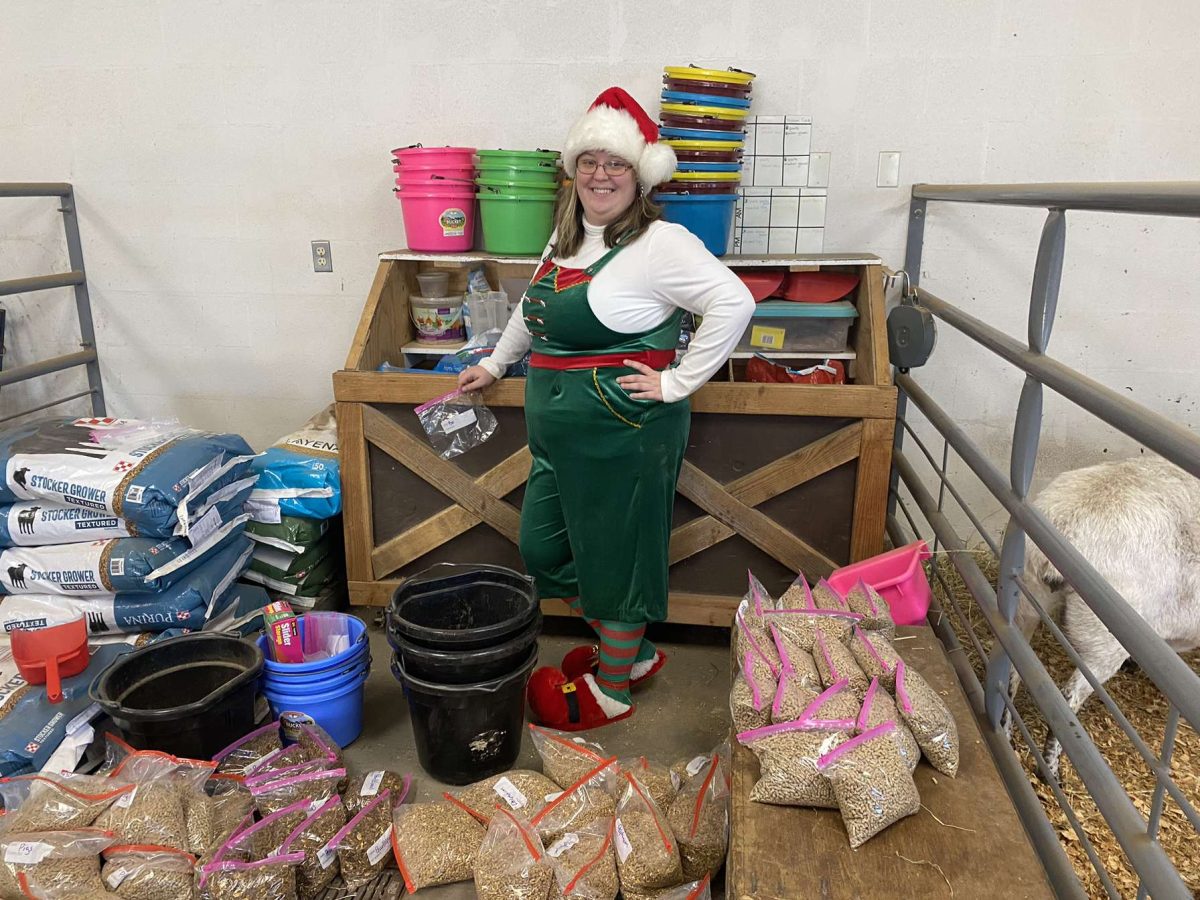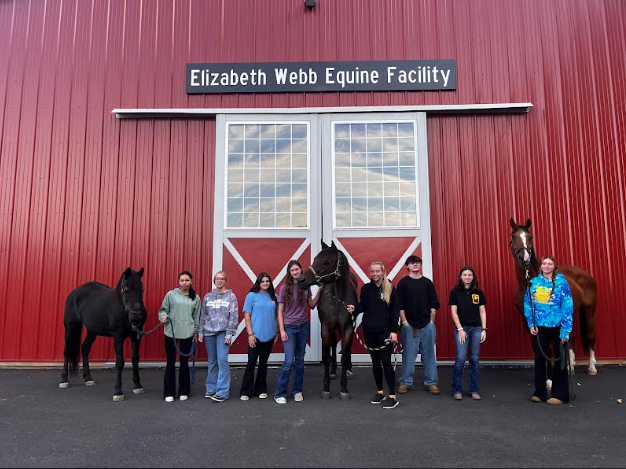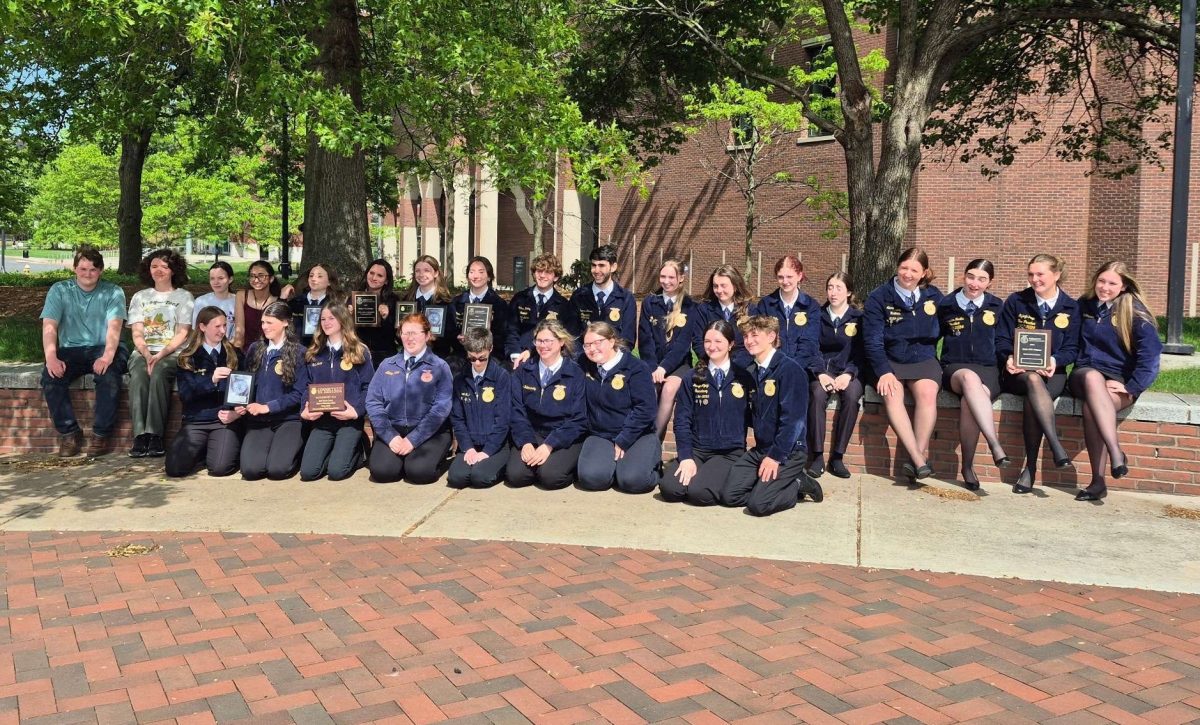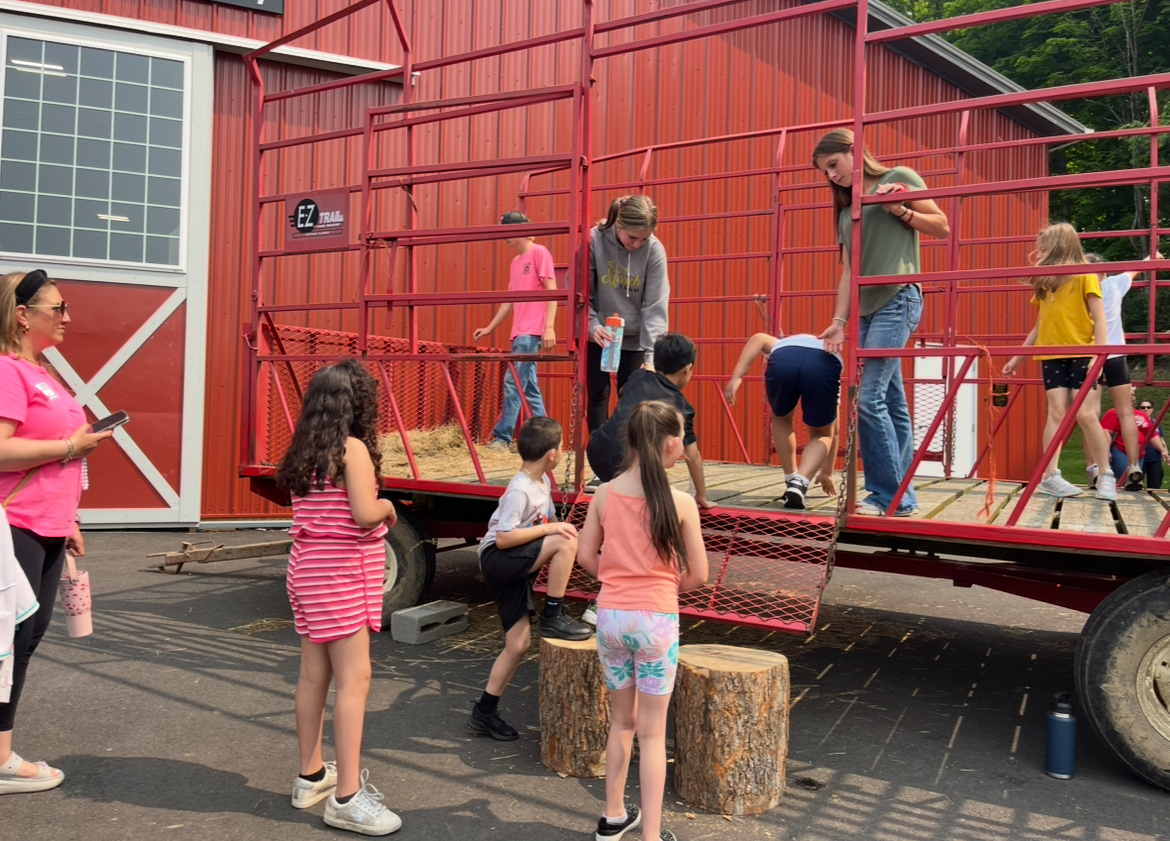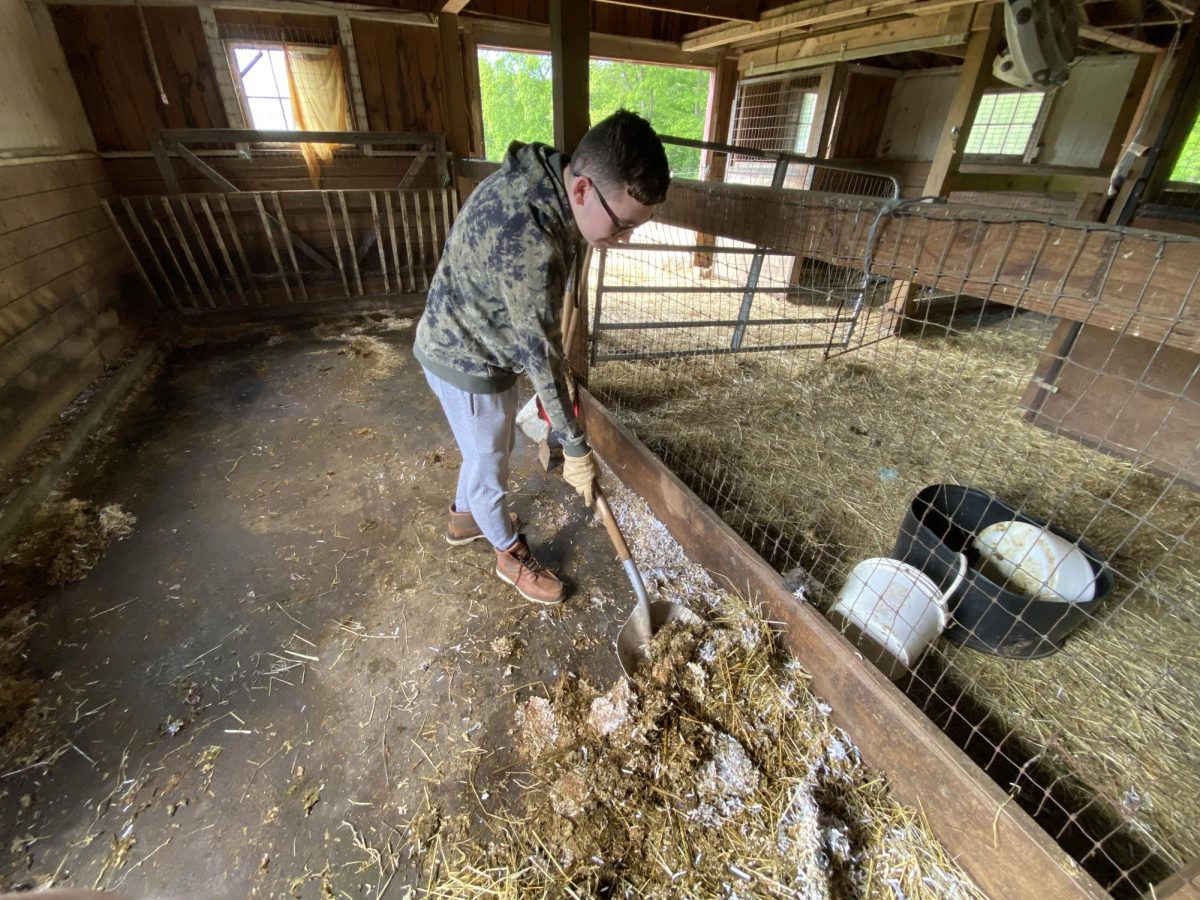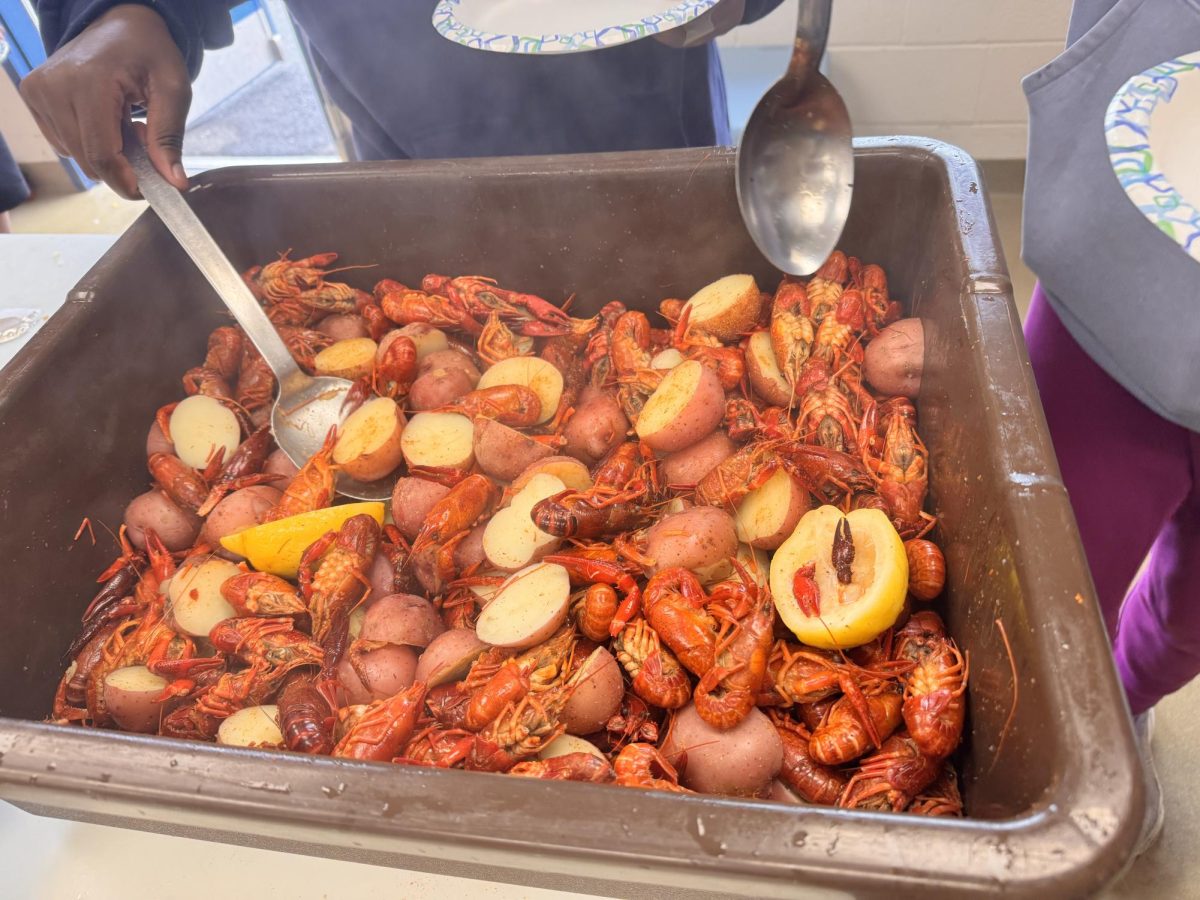WOODBURY — Days and weeks begin to feel longer while students impatiently wait for the holiday break to finally come.
Students’ minds are already on vacation mode after Thanksgiving break. As for the Agriscience teachers, they are busier than ever.
The animals are a priority for the teachers and making sure that they have everything that they need during the break comes with a lot of responsibility.
From cows to goats to mice to fish, everything has its needs and it’s up to teachers to make sure that they get everything they need. The weekend feeders are also there to make sure that they get everything they need.
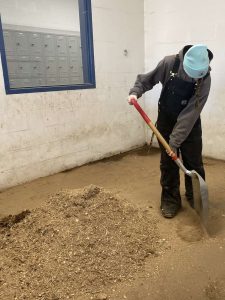
“For our weekend feeder we try to prep them for every single animal,” said Kathleen Gorman, the agriscience animal production instructor. “I try to make buckets or bags of food for every day of the week. When it’s a full week you get up to 12 extra buckets.”
As ready as teachers and staff are for break, their animals come first. For Gorman, her animals mean a lot to her.
“This year if Lambie does not [give birth] before Christmas we also run the risk of her going during Christmas,” says Gorman. “So, I have to make sure that she is all set in case she goes early or she has any issues.”
This year has been far more hectic for the students and teachers in the agriscience building. Between the heavy rainfall flooding the back fields, sheep preparing to have babies, and worrying about who is going to tend to them during break. For agriscience teachers, this can be especially chaotic.
“With the fish in the classroom essentially what we are going to do is have a mass cleanout,” said Leanne Golembeski, NHS’ aquaculture instructor. “Cleaning out all of the tanks, doing a full water change, we physically have to take the fish out of the tanks, take out all the water and scrub all the tanks, rinse them, scrub them again, and then rinse. Then we refill all the tanks.”
This process is not quick for them and this is only for one of the tanks. There are several tanks that will need to be fully cleaned out and refilled before break. For Golembeski, her work does not stop in the classroom either. Outside she has four large holding tanks for the larger fish and these tanks are also used in the greenhouse aspect where the recycled water gets used to help grow vegetables.
“On the hydroponics side we need to make sure that the tubs are filled all the way to the top and nothing is clogged,” Golembeski said. “My classes also have to make sure that everything is clipped and re-clipped in terms of the tomatoes and cucumbers that we also have out there.”
The larger animals also need to be checked and given everything that they need to make sure they will be good during the week of break. Marisa Bedron, the Equine Science instructor is in charge of the goats down in the barn as well as all the horses. Gorman also has cows in the back pastures that need to be cared for over break.
“We also make sure [the horses] get loads of hay. Hay is a great source of keeping them warm,” said Bedron. “It keeps their body constantly digesting food which creates internal warmth.”
Keeping the horses comfortable while it is cold and everyone is away is the most important thing. Blankets are also used to make sure that the horses stay warm.
“The horses will get blanketed if we absolutely feel necessary. However, blanketing isn’t always necessary because all the horses have the natural ability to stand their hair up on end,” says Bedron. “When they stand their hair up on end they can trap air pockets and the air pockets hold they heat in. So by not blanketing them I give them the opportunity to say, ‘Yes I’m cold and I need more,’ and then they can stick their hair up, or ‘No, I’m warm enough’ and they can flatten their hair out.”
For the cows in the pasture, Gorman also prepares them for the break by making sure they have everything they could possibly need.
“The cows in the pasture will have a round bale. With the numbers that we have they have been lasting them for about a week,” Gorman said. “They also have access to the running river for fresh water.”
Collectively, preparing the week of break is not an easy task. Students are always moving around, moving animals, preparing stalls, blanketing horses, locking doors, and so much more. Instructors are coordinating plans with the holiday feeders, supervising the students, taking extra trips to get last minute supplies and so much more. This week leading up to break is crucial to making sure that the animals will be comfortable the entire week of break. This is why instructors and students spend so much time making sure that everything is perfect for them.
“The cleaner it is when you leave the easier it is to clean when you get back,” says Gorman.



